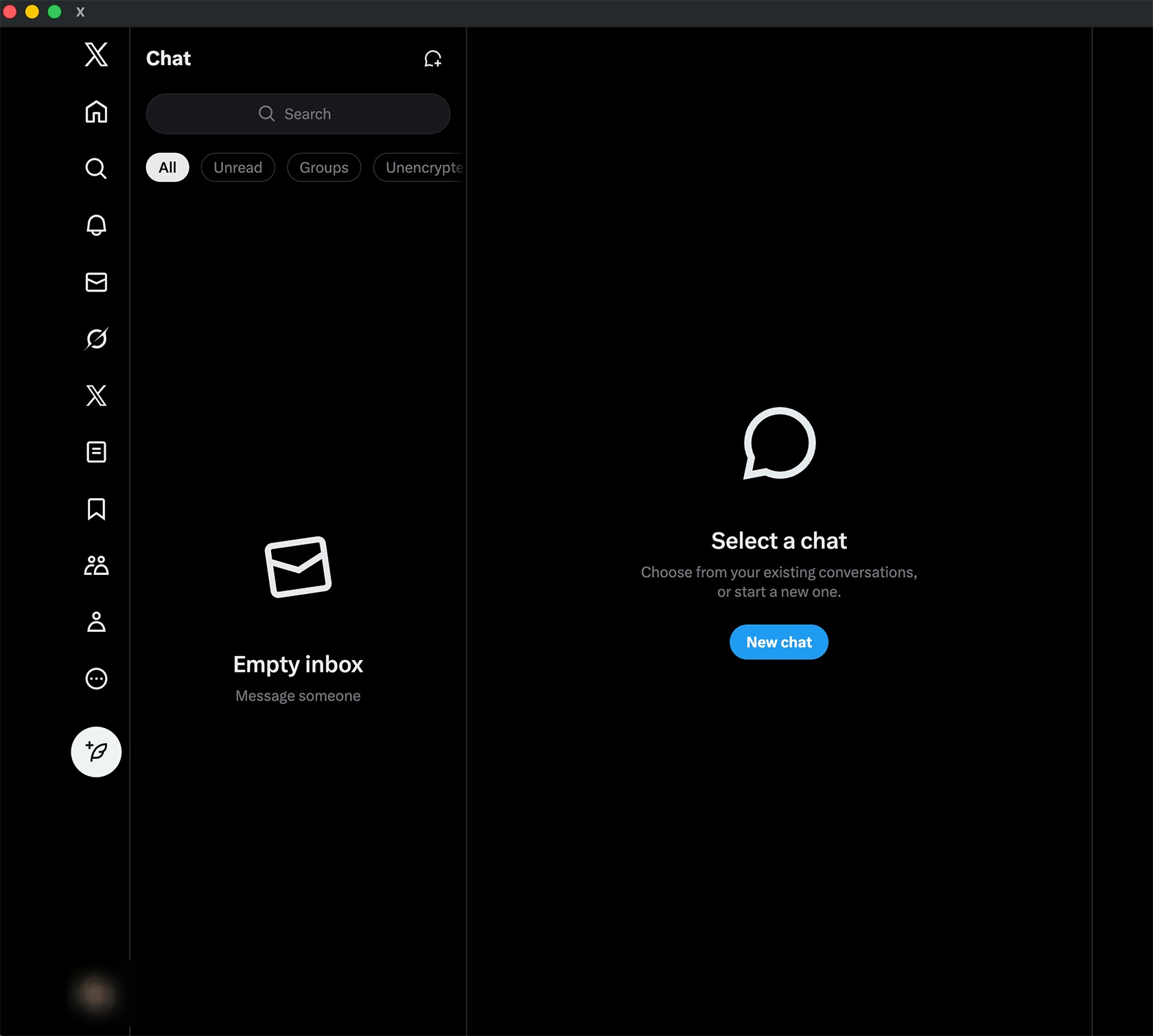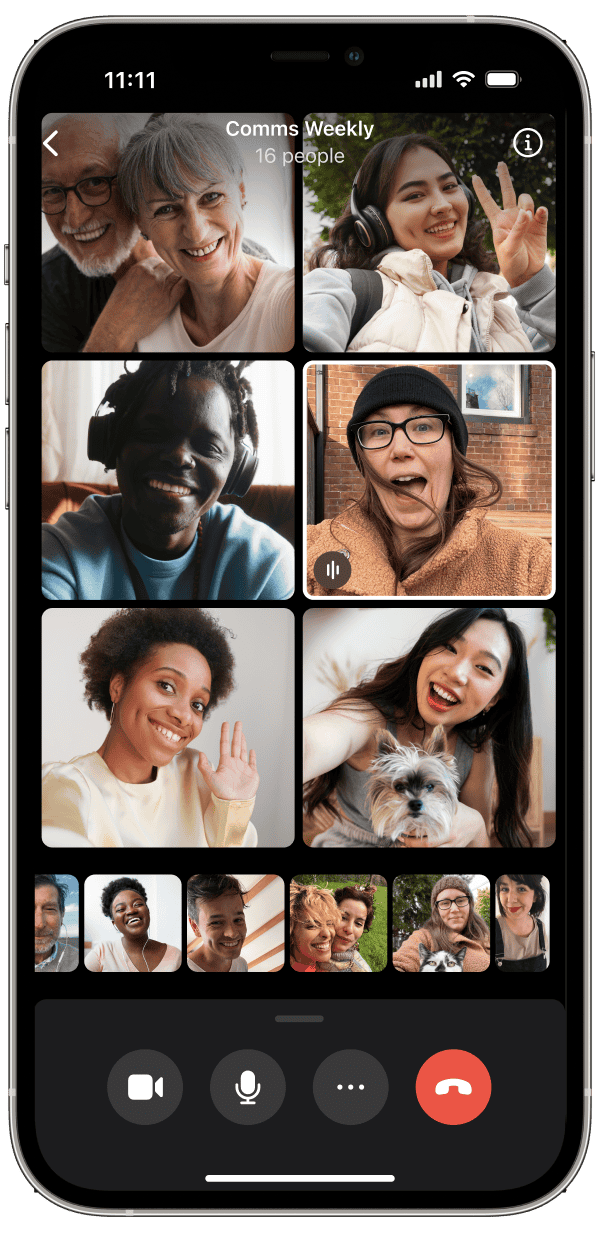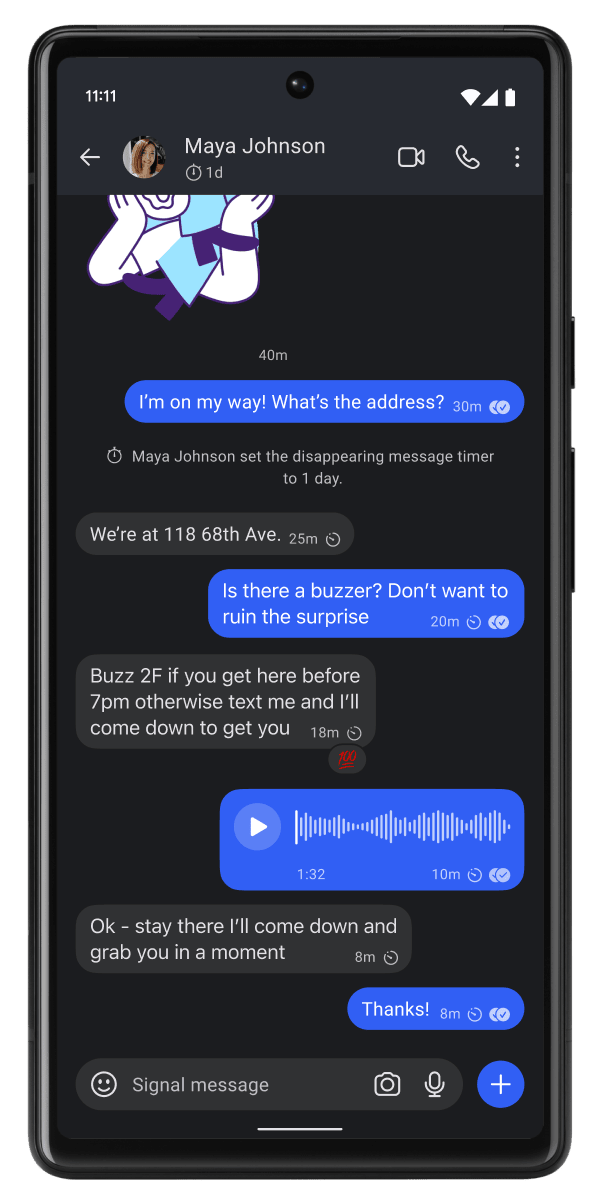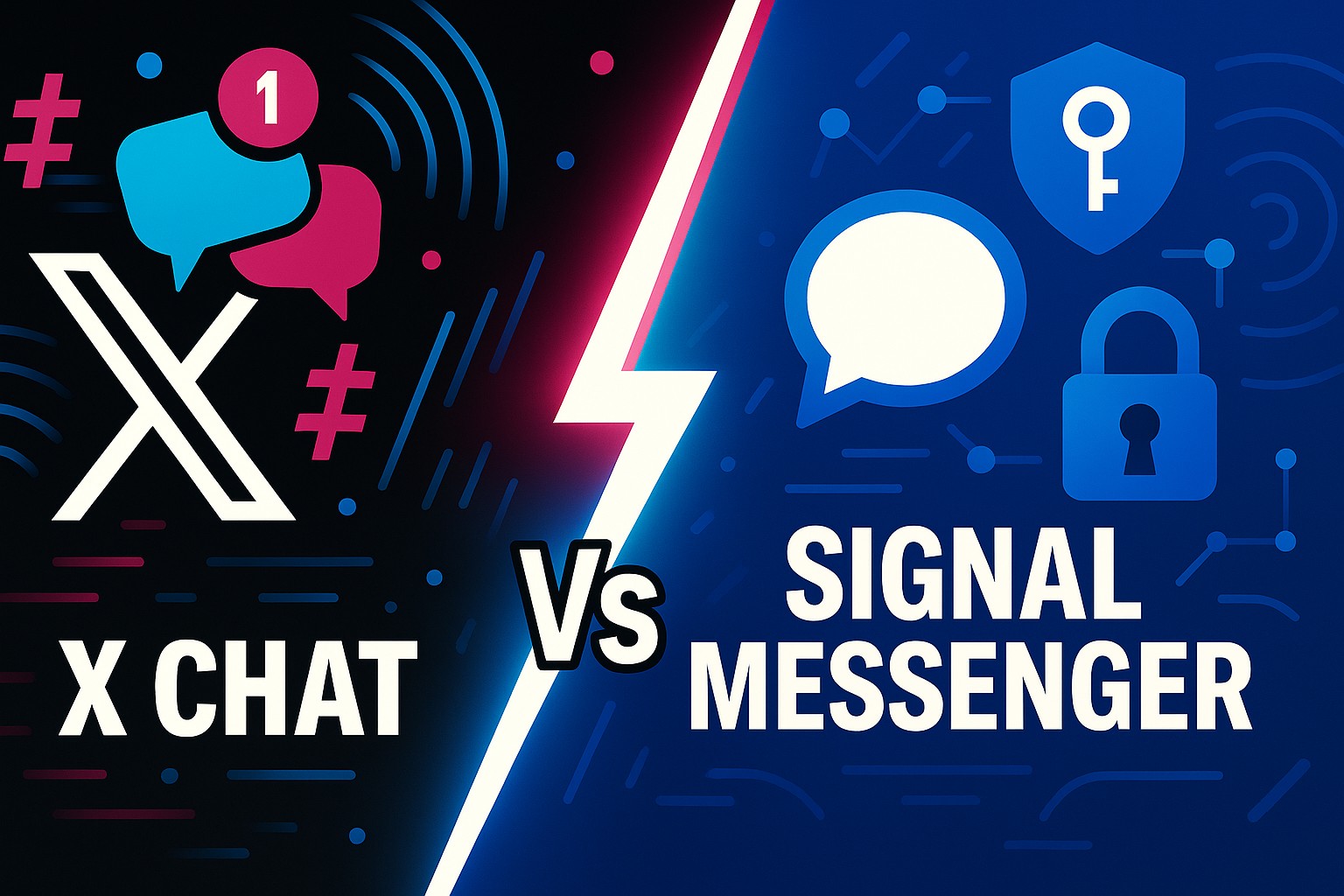Ever feel like you need a secret decoder ring just to pick the right encrypted messaging app? You’re not the only one. Finding a chat app that actually keeps your conversations private can be a huge headache.
The big debate right now is X Chat vs Signal Messenger, and it’s lighting up tech forums everywhere.
Signal has long been the gold standard for its tough-as-nails end-to-end encrypted chats, while X Chat is the new kid on the block trying to shake things up. I’m going to walk you through the eight biggest differences I’ve found, from how they handle your data to what it actually feels like to use them every day.
So, let’s figure out which one really has your back.
Key Takeaways
Signal Messenger is built on the open-source Signal Protocol, featuring end-to-end encryption and Perfect Forward Secrecy. It doesn’t store messages in the cloud, only collects your phone number, and is funded by donations, including $22.7 million in 2023 and $1 million annually from Jack Dorsey.
X Chat, launched on July 25, 2025, is integrated into the X Platform for “X Premium” subscribers. It supports instant messaging, group chats, and large file sharing up to 2 GB, along with features like vanishing messages and creator monetization tools.
X Chat’s business model is based on X Premium subscriptions, which start at $3/month for a Basic tier and go up to $22/month for Premium+. It also relies on ads and revenue-sharing deals, like a major partnership with Telegram.
As of 2025, Signal supports username-based chat, so you no longer need to share your phone number. It works across all major platforms, blocks screenshots on Android, and uses proxy IP masking to protect users from surveillance.
Both apps have disappearing messages, but Signal offers timers from five seconds to four weeks. Only Signal provides fully audited open-source code and strictly limits the data it could share with law enforcement to your account creation date.
Table of Contents
Overview of X Chat

X Chat brings instant messaging, group threads, and cool avatar features directly into the X platform. Because it’s tied to Twitter (X), you can slide from public posts into an encrypted messaging thread without switching apps.
What are the main features of X Chat?
X Chat went live on July 25, 2025. As an X Premium subscriber, I jumped in right away and found a mix of genuinely smart features and some seriously frustrating bugs.

Here’s a quick rundown of what it offers:
- Direct & Group Chats: You can have private one-on-one conversations or create group chats for your friends and teams.
- Media Sharing: Sending photos, videos, and memes is quick and easy.
- Audio & Video Calls: It works like Microsoft Teams or Google Meet, but I found the connection can be a bit choppy at times.
- Emoji & Message Management: Standard features like emoji reactions, marking messages unread, and deleting messages for everyone are all there.
- Vanishing Messages: For extra privacy, you can set messages to disappear after a certain amount of time, just like in secret chats on other platforms.
- Large File Sharing: You can send files up to 2 GB, which is a huge plus and matches competitors like Telegram.
- X Platform Integration: Your direct messages feel connected to the rest of the X ecosystem, with threaded replies and a modern, dark-mode interface.
However, it’s not all perfect. Many of the best features are locked behind the X Premium subscription, and early users, including myself, have noticed notification delays and a lack of multi-device sync at launch.
How does X Chat integrate with the X Platform?
X Chat is woven directly into the fabric of the X Platform. This means you can move from a public Space or a viral post into a private chat instantly. It’s designed to be the central hub for all communication, blending social and private conversations.
Think of it as a mix between Discord’s channels and Telegram’s public forums, but all powered by your follower lists and X’s trending topics.
A key part of the integration is Grok, xAI’s chatbot. It’s built right into the chat experience for Premium+ subscribers, offering real-time summaries of long conversations, fact-checking links, and even generating witty replies for you.
The platform also pushes monetization hard. Creators can receive tips during video streams or even charge for access to exclusive files shared within a chat. To keep things safe, X is using a combination of AI moderation and human moderators to manage group safety, though the specifics on its effectiveness are still emerging.
Overview of Signal Messenger

When it comes to secure communication, Signal is the undisputed champ. It keeps your chats completely locked down with its famous end-to-end encryption, powered by the open-source Signal Protocol. It’s like a secret handshake for your texts, calls, and files, no snoops allowed.


What features does Signal offer?
Signal packs some serious armor for your private conversations without feeling clunky. My daily chats feel as secure as Fort Knox, but the app is still incredibly smooth and easy to use.
- End-to-End Encryption (E2EE): This is the default for everything, period. Every message, call, and file is protected from everyone, including Signal itself.
- The Signal Protocol: This uses the Double Ratchet algorithm to provide forward secrecy. Even if someone stole your keys, your past messages would remain secure.
- Disappearing Messages: You can set timers for messages to vanish, from as little as five seconds to four weeks.
- Screenshot Blocking: On Android devices, this feature prevents anyone from taking a screenshot of your sensitive chats, which is a lifesaver for sharing things like security keys or crypto wallets.
- Single-View Media: Send photos or videos that disappear right after they’ve been viewed once.
- Usernames, Not Phone Numbers: As of early 2025, you can connect with people using a username, so you don’t have to give out your phone number anymore.
- No Cloud Backups: Unlike other apps, Signal doesn’t store your messages on iCloud backup or Google Drive by default. This means there are no decrypted copies for law enforcement to grab from a server.
- Open-Source Code: Anyone can audit Signal’s code to check for vulnerabilities, which is why it’s trusted by cybersecurity experts worldwide. For a deep dive, you can check out why why people like Signal.
How does Signal prioritize privacy and encryption?
Signal’s commitment to privacy is built into its DNA. Because its code is open-source, it’s constantly being examined by security researchers. This transparency ensures that its encryption is as solid as it claims to be.
The app uses the double ratchet encryption method and Perfect Forward Secrecy, which means a new encryption key is generated for every single message. Servers never store these keys, so your data stays on your device.
In a March 2025 SXSW talk, Signal’s President Meredith Whittaker put it this way: “We don’t think about what are the precious things, the democracy, freedom of thought, freedom of expression, intimacy that privacy actually guarantees as a fundamental condition.”
Signal is a 501(c)(3) nonprofit, funded by donations and grants, not by selling your data. This financial independence is key to its mission. It received a foundational $50 million loan from WhatsApp co-founder Brian Acton and gets ongoing support, including a pledge of $1 million annually from Jack Dorsey since 2022.
Key Differences Between X Chat and Signal

The core difference between X Chat and Signal comes down to their fundamental philosophies. X Chat is built to keep you inside its ecosystem, blending social media with private chats, while Signal is designed with one goal, private communication.
This shapes everything from their privacy policies to how they make money.
How do their privacy policies and data handling differ?
Signal’s policy is simple, it collects almost nothing. The company is a nonprofit and only requires your phone number to sign up (though you can now use usernames to connect). They don’t store your contacts, location, or chat logs on their servers. If the FBI comes knocking, the most Signal can provide is the date your account was created.
X Chat, being part of the larger X platform, operates under a much different model. Its privacy policy is tied to X’s, which means it collects data to personalize your experience and show you ads. While the chats themselves are end-to-end encrypted, the metadata, who you talk to and when, is still collected.
Here’s a quick comparison to put it in perspective:
| Feature | Signal Messenger | X Chat | Telegram |
|---|---|---|---|
| Data Collected | Phone number (for signup only) | Metadata, contacts, device info | IP address, phone number, contacts |
| E2EE by Default? | Yes, for everything | Yes, for chats | No, only for “Secret Chats” |
| Data Shared with Law Enforcement | Account creation date only | Metadata and user info as required | IP & phone number for 2,253 users in the US in 2024 |
What are the business models and monetization strategies?
This is where the two apps couldn’t be more different. X Chat is a commercial product designed to drive revenue for X. It does this primarily through its subscription service, X Premium.
The pricing for X Premium has a few tiers:
- Basic: $3 per month for features like editing posts and longer video uploads.
- Premium: $8 per month adds the blue checkmark, reduced ads, and monetization tools.
- Premium+: $22 per month offers an ad-free experience and full access to Grok AI.
Signal, on the other hand, is a nonprofit run by the Signal Foundation. It operates entirely on donations and grants. There are no ads, no data selling, and no subscription tiers. You can donate directly in the app through Google Play or Apple’s payment systems, but it’s completely optional. This model allows Signal to focus solely on its mission of providing free, private communication for everyone.
Comparison of Communication Features

When you get down to the nuts and bolts of daily use, both apps handle the basics well, but their different priorities become clear. X Chat is loaded with features designed for creators and power users, while Signal keeps its focus squarely on clean, secure, and reliable communication.
How do messaging and call functions compare?
Signal offers crystal-clear voice and video calls, all protected by the same end-to-end encryption as its messages. Group calls are simple and reliable. However, Signal’s group chat size is limited to 1,000 members, which is more than enough for most people but small compared to other platforms.
X Chat also offers encrypted calls and group messaging. Its main advantage is the deep integration with the X platform, allowing you to do things like start a group chat directly from a post. But it can’t compete with the massive scale of an app like Telegram, which supports “supergroups” of up to 200,000 members.
As Signal co-founder Moxie Marlinspike famously said, “Privacy isn’t a setting, it’s the default.” This philosophy drives every feature in the app, keeping things simple and secure without extra fluff.
While both X Chat and Signal are available on iOS and Android, Signal’s desktop apps for Windows, macOS, and Linux are known for being lightweight and stable, offering a seamless cross-platform experience.
What file sharing and multimedia options are available?
Both apps let you share photos, videos, and files, but there are some key differences in their capabilities. This is one area where X Chat really shines, especially for creators or professionals who need to move large files around.
Here’s how they stack up:
- File Size Limits: X Chat lets you send files up to 2 GB, which is a massive advantage. Signal, by contrast, has a much smaller limit of 100 MB per file.
- Media Previews: X Chat generates rich preview cards for links, TikTok clips, and other media shared from the X platform.
- Disappearing Media: Both apps let you send self-destructing media. However, only Signal offers a true screenshot block on Android for an extra layer of privacy.
- Security: Signal encrypts every file with its trusted protocol. X Chat uses its own system, which includes an optional blockchain security layer to create a verified transfer history, a feature that might appeal to developers or those in crypto.
- Monetization: X Chat is unique in its integration of payments. You can tip someone with Doge for a file they shared or unlock premium content within a chat using a connected digital wallet.
- Image Quality: A common complaint on forums like Reddit is that many apps compress images, ruining the quality. Users often praise Signal for its watermark-free transfers that don’t turn high-resolution photos into pixelated mush.
Security and Encryption Analysis
This is where things get really geeky. Both apps use strong encryption, but their approaches and the level of transparency they offer are worlds apart. X Chat uses standard Transport Layer Security, while Signal is built on its own world-renowned, open-source Signal Protocol.
How do their end-to-end encryption methods compare?
Signal’s end-to-end encryption is the gold standard for a reason. The Signal Protocol is open-source, peer-reviewed, and has been independently audited multiple times. In fact, it’s so secure that other major apps, including WhatsApp and Google Messages for RCS, have adopted it to protect their users.
The protocol ensures Perfect Forward Secrecy. This means that even if an attacker managed to steal a key from your device, they couldn’t decrypt your past messages. Your conversations are protected piece by piece.
Its security is so trusted that even U.S. government officials have relied on it. In March 2025, it was reported that White House officials were using Signal to coordinate during a military strike in Yemen.
X Chat also uses end-to-end encryption, but its protocol is proprietary and closed-source. While it’s likely secure, the lack of transparency makes it impossible for independent researchers to audit the code and verify its integrity. For the security-conscious, this is a major red flag.
What additional security features do they provide?
Beyond the core encryption, both apps offer extra tools to lock down your account. I’ve tested these out, and there are some pretty big differences that geeks will definitely appreciate.
- Anonymous Sign-up: Signal now lets you use usernames, so you don’t have to share your phone number. X Chat is tied to your X account, which often contains a lot of personal information.
- Screenshot Blocking: Signal on Android has a robust feature to block screenshots and screen recorders. It’s a simple but powerful tool to prevent your private conversations from being easily saved and shared.
- Incognito Keyboard: This is another Android-only Signal feature. It prevents your keyboard app from learning and storing what you type in Signal, keeping your conversations out of your phone’s predictive text engine.
- Proxy IP Masking: For users in regions with heavy surveillance, Signal allows you to route your traffic through a proxy server, hiding your real IP address. This is a critical feature for activists and journalists.
- Open Source vs. Closed Source: This is the big one. Signal’s code is fully open for anyone to inspect. X Chat’s code is a black box. You have to trust that the company is doing what it says it is. For anyone curious about potential exploits, this page breaks down if the Signal app can be hacked.
User Experience and Accessibility
At the end of the day, an app can have the best security in the world, but if it’s a pain to use, nobody will stick with it. Both Signal and X Chat have modern interfaces, but they cater to different kinds of users.
How user-friendly are their interfaces?
Signal has a clean, minimalist design that feels very familiar, much like the default SMS app on your phone. It prioritizes simplicity and ease of use. There’s no clutter, just your conversations. This focus has earned it high marks from users, boasting a 4.8-star rating on the Apple App Store.
X Chat has a slick, modern look that matches the rest of the X platform. However, its deep integration can also make it feel cluttered. Because it’s a newer app, users have reported more bugs, like frozen screens or delayed notifications. This has led to a slightly lower, though still respectable, 4.2-star rating in the app stores.
WhatsApp, for comparison, has perfected its user-friendly group chat tools, which is why it remains so popular for business teams who need smooth file sharing and reliable performance on both desktop and mobile.
Which platforms are supported by each app?
Platform support is a huge factor for anyone who jumps between different devices throughout the day. Here’s a quick breakdown of where you can use each app:
- X Chat: This lives inside the main X app, so you need an X account to use it. It’s available on Android and iOS, but keep in mind that many features are restricted to paying X Premium subscribers.
- Signal: It runs on almost everything, Android, iOS, Windows, macOS, and Linux. The cross-platform support is excellent. I can seamlessly switch from my PC to my phone without missing a single message.
- Telegram: As a point of comparison, Telegram also supports all major platforms and includes a web interface, which is great for accessing your chats from any browser without needing to install an app.
- Briar: For the truly hardcore privacy advocates, an app like Briar is Android-only by design. It keeps all data on the device, completely off the cloud, which is why it’s a favorite among journalists and activists.
How Will X Chat and Signal Change in 2025?
X Chat made a big splash when it launched, and it’s clear the team is moving fast. Recent updates have focused on increasing file sharing limits, adding more chat themes, and rolling out interactive content features.
Looking ahead, there are strong rumors about a built-in marketplace and more advanced AI moderation tools powered by Grok.
Signal isn’t standing still either. The 2025 rollout of username support was a massive step forward for user privacy. Upcoming features in beta include polls for group chats and improved secure backups. Signal is also working on strengthening its encryption to be resistant to future threats from quantum computers.
Both platforms are facing a changing landscape. As more of our lives move online, the demand for both feature-rich and truly private communication will only grow, forcing each app to keep evolving.
People Also Ask
How does X Chat handle privacy compared to Signal Messenger?
Signal uses the open-source Signal Protocol for end-to-end encryption, which is the gold standard for privacy and can be publicly audited. X Chat’s privacy is based on a closed-source system, so you have to trust the company’s claims without independent verification.
Can I share TikTok videos easily on both X Chat and Signal Messenger?
While X Chat is built for seamless social sharing, Signal prioritizes security and has a 100MB file limit, which can sometimes affect large video files from platforms like TikTok.
What makes forward secrecy important in messaging apps?
Forward secrecy, powered by the Double Ratchet Algorithm in Signal, ensures that if a key is ever stolen, it can’t decrypt past messages, keeping your chat history secure. X Chat’s standard encryption might not protect past communications if compromised.
Which app is better for group chats and media sharing, X Chat or Signal Messenger?
X Chat likely offers more media-focused features, but Signal provides secure group chats for up to 1000 people with privacy tools like disappearing messages. For feature-rich social sharing choose X Chat; for secure, private groups, Signal is the clear winner.
References
https://techpoint.africa/guide/elon-musk-xchat-review/ (2025-07-25)
https://artoonsolutions.com/elon-musk-launches-xchat/
https://www.technologyreview.com/2025/03/27/1113919/what-is-signal-the-messaging-app-explained/ (2025-03-27)
https://cyberinsider.com/secure-encrypted-messaging-apps/signal/
https://www.leapxpert.com/whatsapp-vs-signal-privacy-features-compared-in-2025/
https://citanex.com/resources/messaging-apps-comparison-2025/
https://www.pcmag.com/picks/best-secure-messaging-apps
https://www.devopsschool.com/blog/top-10-chat-apps-in-2025-features-pros-cons-comparison/ (2025-07-17)
